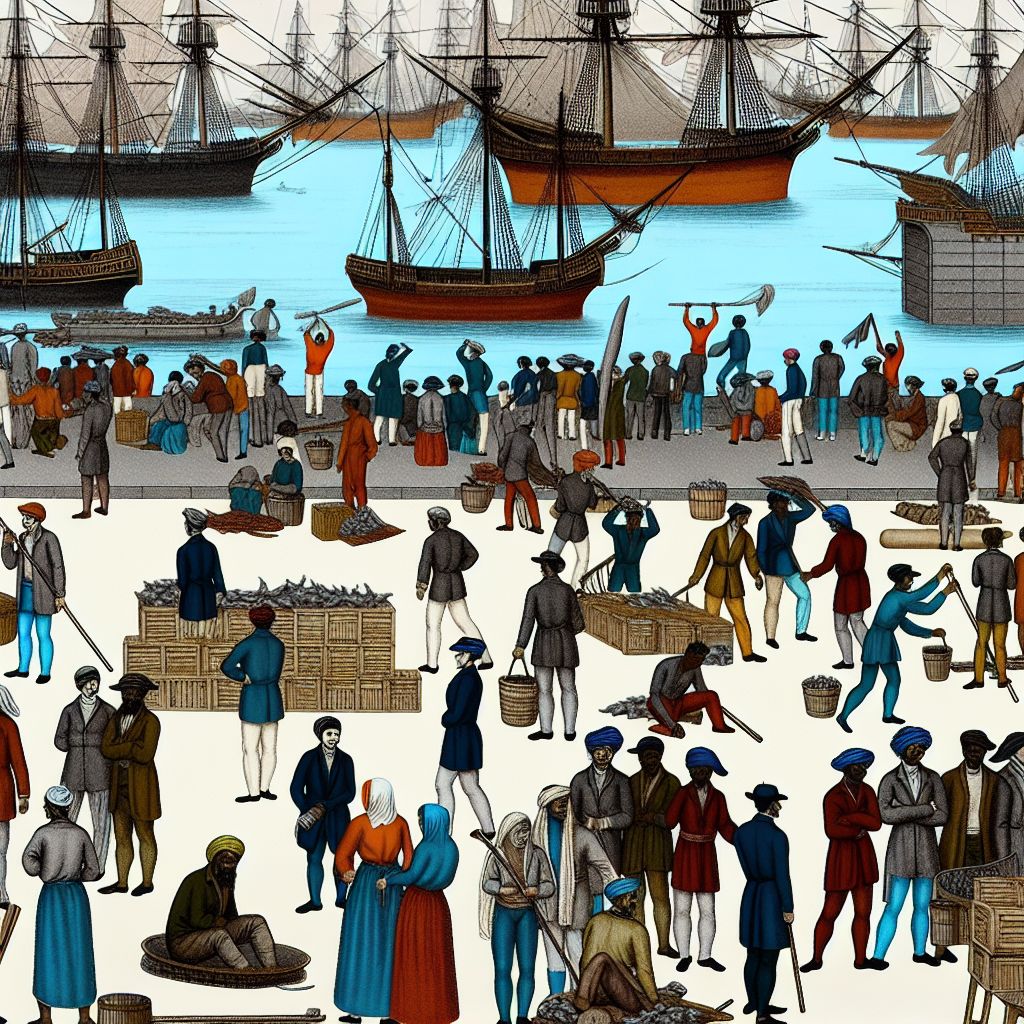Deutsch: Seehafen / Español: Puerto marítimo / Português: Porto marítimo / Français: Port maritime / Italiano: Porto marittimo
A seaport in the travel context refers to a coastal facility equipped with docks, warehouses, and terminals designed to handle passenger and cargo transportation by sea. Seaports serve as vital gateways for international travel and trade, facilitating the movement of people, goods, and services across the world's oceans and seas.
Description

Seaports play a crucial role in the global transportation network, connecting maritime routes with land-based transportation systems such as railways and highways. In addition to their commercial and logistical functions, many seaports also cater to passenger travel, offering terminals and facilities for cruise ships and ferries. These passenger terminals often include amenities such as waiting areas, ticketing offices, customs and immigration processing, and sometimes tourist information centers.
The significance of seaports extends beyond their operational functions; they are often central to the economic, cultural, and social fabric of the coastal cities and regions they serve. Major seaports can be hubs of tourism, offering travelers unique insights into maritime heritage, access to waterfront attractions, and embarkation points for sea voyages to a variety of destinations.
Application Areas
- Commercial Shipping: Handling the import and export of goods, including bulk cargo, containers, and vehicles.
- Passenger Travel: Facilitating sea travel through cruise ships, ferries, and recreational boating.
- Naval and Military: Serving as bases for naval vessels and supporting national defense strategies.
- Fishing and Aquaculture: Providing facilities for commercial fishing fleets and aquaculture operations.
Well-Known Examples
Notable seaports around the world include:
- Port of Shanghai, China: One of the busiest container ports in the world, playing a key role in global trade.
- Port of Singapore: A critical hub for international shipping and passenger cruises in Southeast Asia.
- Port of Rotterdam, Netherlands: Europe's largest port, known for its advanced logistics and maritime services.
- Port of Miami, USA: Recognized as the "Cruise Capital of the World," serving millions of cruise passengers annually.
Treatment and Risks
Managing a seaport involves addressing various challenges:
- Environmental Impact: Implementing sustainable practices to minimize pollution and protect marine ecosystems.
- Security: Ensuring the safety of passengers, workers, and cargo through comprehensive security measures.
- Infrastructure Development: Upgrading facilities and technology to accommodate modern vessels and increase efficiency.
- Economic Fluctuations: Adapting to changes in global trade patterns and economic conditions that affect cargo volumes and passenger numbers.
Similar Terms or Synonyms
- Maritime port
- Harbor
- Dockyard
Summary
Seaports are indispensable components of the global travel and transportation ecosystem, serving as crucial nodes that link sea routes with land and air transport networks. Whether facilitating international trade, supporting passenger travel, or contributing to local economies and cultures, seaports embody the interconnectedness of today's world, underscoring the importance of maritime infrastructure in facilitating global exchange and Exploration.
--
Related Articles to the term 'Seaport' | |
| 'Harbour' at top500.de | ■■■■■■■■■■ |
| Harbour (UK-English. In US-English it is harbor) refers to a place on the coast where ships, boats, and . . . Read More | |
| 'Ports and Terminals' at maritime-glossary.com | ■■■■■■■■■■ |
| Ports and Terminals: Ports and terminals are critical components of the Maritime industry, serving as . . . Read More | |
| 'Wharf' | ■■■■■■■■■■ |
| Wharf in the travel context refers to a structure on the shore of a harbour, river, or canal where ships . . . Read More | |
| 'Port' at maritime-glossary.com | ■■■■■■■■ |
| A port is a location on a coast or shore containing one or more harbors where ships can dock and transfer . . . Read More | |
| 'Harbour' at maritime-glossary.com | ■■■■■■■■ |
| Harbour in the maritime context is a sheltered body of water where ships, boats, and other vessels can . . . Read More | |
| 'Terminal' at maritime-glossary.com | ■■■■■■■ |
| Deutsch: Terminal / Español: terminal / Português: terminal / Français: terminal / Italian: terminal . . . Read More | |
| 'Asia' at maritime-glossary.com | ■■■■■■■ |
| Asia in the maritime context refers to the expansive and diverse region of the world that is surrounded . . . Read More | |
| 'Port Infrastructure' at maritime-glossary.com | ■■■■■■ |
| Port Infrastructure: Deutsch: Hafeninfrastruktur / Español: Infraestructura portuaria / Português: . . . Read More | |
| 'Warehousing' at maritime-glossary.com | ■■■■■■ |
| Warehousing in the maritime context refers to the storage of goods in facilities, typically located near . . . Read More | |
| 'Port Operations' at maritime-glossary.com | ■■■■■■ |
| Port Operations in the maritime context refers to the various activities and processes involved in managing . . . Read More | |
